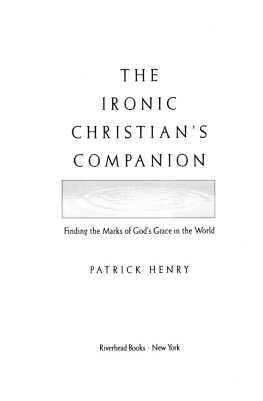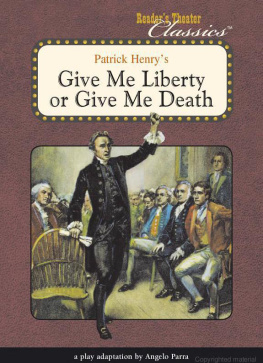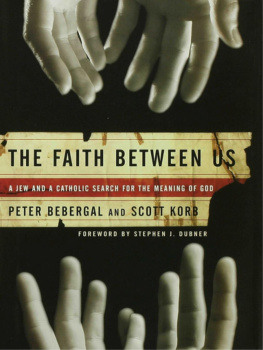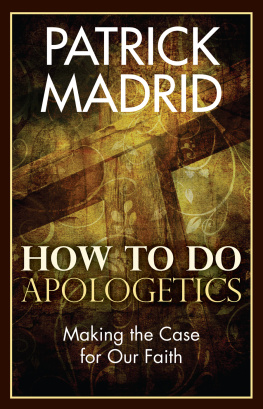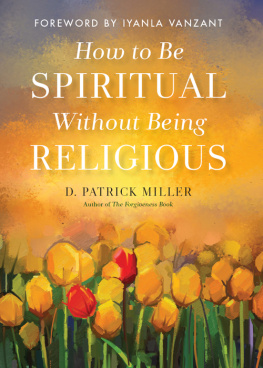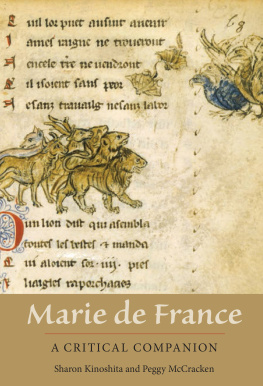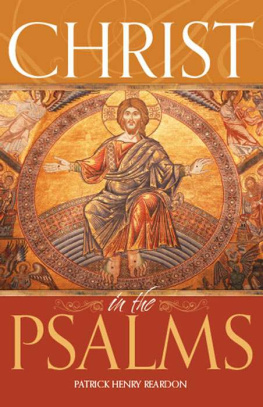A thinking Christians book... uncommonly candid and well-written.
The Dallas Morning News
Both [Kathleen Norris and Patrick Henry] lace together personal experience, theology, and the wisdom of thinkers before them in explaining why they believe what they do. And both manage to avoid the extreme poles of Christianity that so many other writers adopt, allowing for ambiguity and doubt but also allowing for belief and conviction.
Cincinnati Enquirer
[Henrys] tone is relaxed, sincere, and maximally accessiblehe is no theological jargon-spewer. He fully understands the ambivalence so many feel about both religion and irreligion, and he ministers excellently to such skeptical spiritual seekers.
Booklist
A guide to living with faith in a modern world in which there are no easy answers.
St. Cloud Times
A breezy, conversational style that is likely to have considerable popular appeal.
Publishers Weekly
[Henry] offers shared wisdom and teasers of the imagination for believers and skeptics alike attempting to live in a reasonably sane world.
Library Journal
Most Riverhead Books are available at special quantity discounts for bulk purchases for sales promotions, premiums, fund-raising or educational use. Special books, or book excerpts, can also be created to fit specific needs.
For details, write: Special Markets, The Berkley Publishing Group, 375 Hudson Street, New York, NY 10014.

Riverhead Books
Published by The Berkley Publishing Group
A division of Penguin Putnam Inc.
375 Hudson Street
New York, New York 10014
A continuation of permissions appears .
Copyright 1999 by Patrick Henry
Cover design 1999 by Walter Harper
Cover and title page photograph 1999 by Marc Yankus
All rights reserved. This book, or parts thereof,
may not be reproduced in any form without permission.
First Riverhead hardcover edition: March 1999
First Riverhead trade paperback edition: February 2000
ISBN 978-1-101-66471-1
The Penguin Putnam Inc. World Wide Web site address is http://www.penguinputnam.com
The Library of Congress has catalogued the Riverhead hardcover edition as follows:
Henry, Patrick.
The ironic Christians companion: finding the marks of Gods grace in the world / Patrick Henry.
p. cm.
Includes bibliographical references.
1. Grace (Theology) I. Title.
BT761.2.H46 1999 9833287 CIP
for my wife
PAT WELTER
So this can be,
two lifetimes
have conspired
to find resonance,
the dance of a double star.
ON WHAT YOU WILL (AND WONT) FIND IN THIS BOOK
A m I one of them? You say its for ironic Christians. How do I know if theres any point in my reading further?
A fair question. And if you require a neat, brief answer, this book is not for you. One of the chief characteristics of an ironic Christian is an instinctive, abiding suspicion of no-loose-ends answers.
Catholic, Pentecostal, Methodist, Orthodoxthese kinds of Christians are familiar. But Ironic? Im not starting a new denomination. I cant remember the moment when I first knew that the term was right, but it serves to identify a way of being Christian that seems strange in these days when the Christians who are the loudest are very sure about many things that might be thought still open for discussion.
An ironic Christian inhabits a world that is more as if than just like, a world fashioned by a God of surprises. The grace of this God is mysterious, sneaky. Some Christians chalk things up much too easily, too quickly, to the grace of God. There but for the grace of God go I has the merit of not claiming too much credit for myself, but it implies that I have more of Gods grace than the other person.
I trust Gods grace but hesitate to identify it in particular cases. It often blindsides me, regularly catches me off guard, seldom hits me square in the face. When I know the grace of God, its nearly always after the fact, usually long afterward.
Grace, as I have experienced it, makes me an ironic Christian. I cannot define ironic Christian in a few sentences. If I could, Id not have bothered writing a book. The only way I can explain ironic Christian is to invite you to come with me into a world where I have found, and been found by, the grace of God.
This book is not an owners manual. Im not telling you how to fix anything. If you picked the volume off a self-help shelf, somebody put it in the wrong place. The book is a Companionthe fancy traditional Latin term is vademecum, or go with mea combination of shared wisdom, spiritual resource, antidote to boredom, helper out of jams, teaser of the imagination, and, ideally, a good read.
In some ways, too, this Companion is like a field guide. Im thinking of Roger Tory Petersons Field Guides to the birds, which, he says, are designed so that live birds could be readily identified at a distance by their field marks. I find the term field marks especially helpful. I am concerned with what I have come to think of as the field marks of the grace of God. Since I usually discern Gods grace at a distance and after the fact, not up close and at the moment, I am always on the lookout for field marks that can be seen in retrospect and from afar. I want to be very clear: In this book, I am not defining the grace of God. Im saying what I have found it to be like. I make no claim that this Companion is in some universal or objective sense true. I hope it is trustworthy.
Some of what I say is autobiographical in the conventional sense: what I did, how I felt doing it, the reactions of others. I want in these pages to be a companion for you as many writers have been for me. The borders between reading and writing and living are fluid. I do not take time out from life to write, nor do I take time out from life to read. When I quote somebody, Im not hiding. Im introducing you to one of my conversation partners.
The grace of God is not linear, hence the absence of chapter numbers. The sections of this book are called On this rather than This because they open up more than they finish off what theyre about. I take both cues and comfort from the title of a college admissions brochure that slyly offers A Question for Every Answer, and from movie director Jean-Luc Godards response when another filmmaker, not a fan of modern cinemas haphazard adherence to chronology, harrumphed, Movies should have a beginning, a middle, and an end: Certainly, but not necessarily in that order.
The ordering of things in these pages isnt arbitrary, but it isnt sacrosanct either. It makes sense to read straight through. It also makes sense to jump around.
Stay with me, read on. You dont have to know at the start whether youre an ironic Christian. When youre done, you still might not know. Demand for guarantees far exceeds supply. But even if youre a non-ironic Christian, or not Christian at all, you might enjoy the journey. The root meaning of companion is one who eats bread with, not one who agrees with, and the best traveling parties, beginning with Chaucers motley band on the way to Canterbury, are those with an uncommon mix of guests.
ON LITTLE BROWN JOBS
I f I say right at the beginning that grace, amazing grace, has brought me safe thus far and will lead me home, it may seem that I am stuffing the rabbit into the hat so I can pull it out later. This book is about the grace of God, but not about magic, and certainly not about anything easy. Its about something simple, that God can be trusted but not taken for granteda difficult simplicity that I didnt learn in kindergarten or even in college or graduate school. I discovered it along a way that twists and turns, where Yogi Berras advice, When you come to a fork in the road, take it, makes perfect sense.

